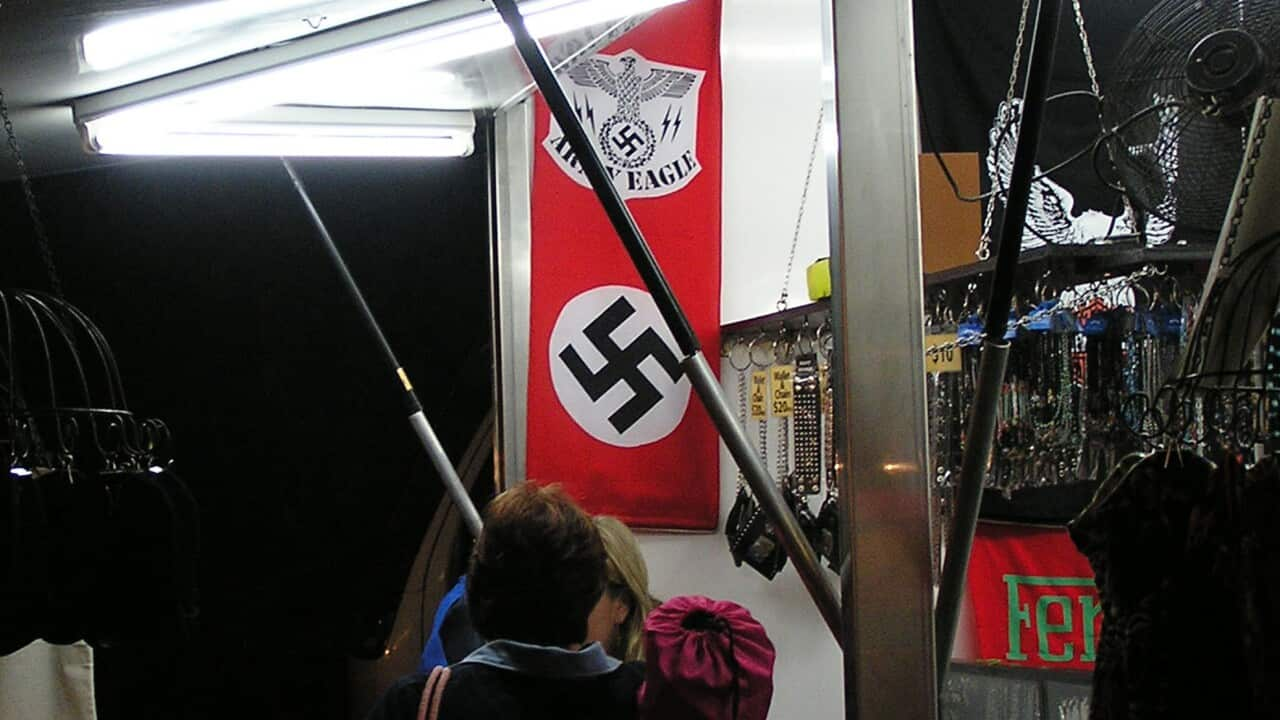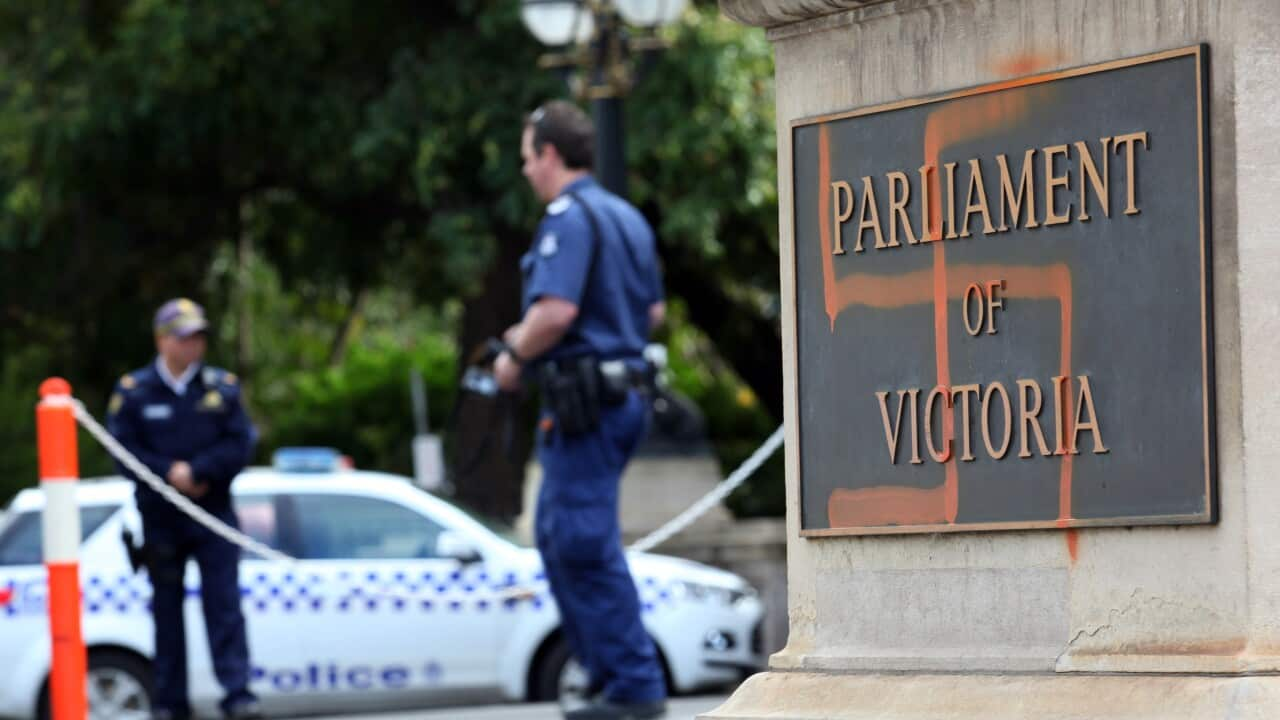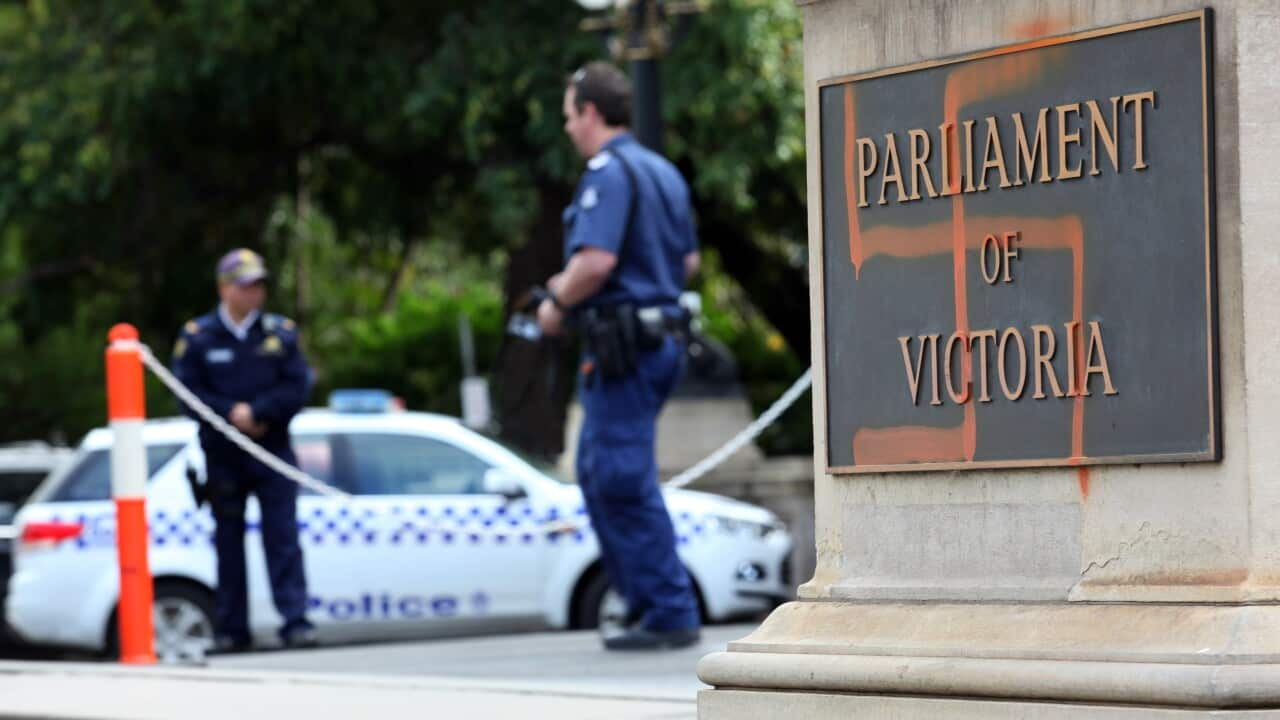Key Points
- Intentionally waving a Nazi flag in NSW or displaying a swastika can land a person in jail for up to a year.
- NSW becomes the second state in Australia to pass the landmark legislation after Victoria in June.
Intentionally waving a Nazi flag in NSW or displaying memorabilia bearing swastikas can land a person in jail for up to a year, along with a fine of over $100,000.
The swiftly passed in the upper house on Thursday with unanimous support.
It comes after an inquiry earlier this year recommended a ban on the public display of Nazi symbols in a bid to tackle rising anti-Semitism.
NSW Jewish Board of Deputies CEO Darren Bark described the passing of the law as a historic day for NSW.
"Nazi symbols are a gateway to violence and are used as a recruitment tool by extremists," he said.
"Banning their display is a long-overdue and much-needed law in our state. The perpetrators will finally be held to account".
The Holocaust is the genocide perpetrated by the Nazi regime in Germany that killed some six million Jews and other minority groups including during World War 2.
A section in the bill states that the display of a swastika in connection with Buddhism, Hinduism or Jainism is permitted and is separate to the illegal display of a Nazi symbol, the Hakenkreuz.
"For too long, the Hindu community has not felt comfortable to display our symbol of peace because it resembled a symbol of evil. This is no longer," said Hindu Council of Australia national vice-president Surinder Jain.

The swastika is a highly religious and spiritual figure for Hindus and Buddhists around the world. Source: Getty / SOPA Images/LightRocket via Getty Images
Labor's Walt Secord, a member of the parliamentary committee examining the ban of Nazi symbols and an ardent advocate for the bill, said 31 incidents of displaying the Nazi flag were reported to the police in 2020.
Many members from the government and opposition in the upper house recounted personal stories of their families' lived experiences enduring the Holocaust while others warned of the dangers of rising neo-Nazi trends.
On Thursday, Mr Secord referred to a NSW man arrested by counter-terrorism police in September found to be in possession of a Nazi flag and a map of the state on his bedroom wall with plans to make a 3D-printed gun.
ASIO said in 2020 that far-right violent extremism with its emphasis on neo-Nazi ideology makes up around 40 per cent of its counter-terrorism caseload.











